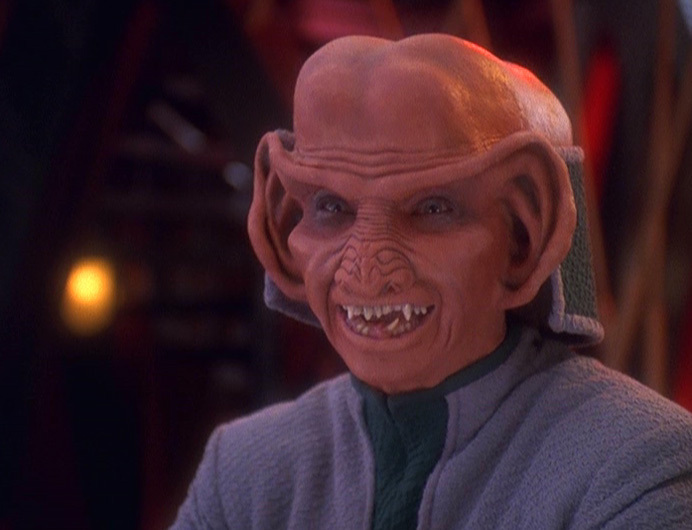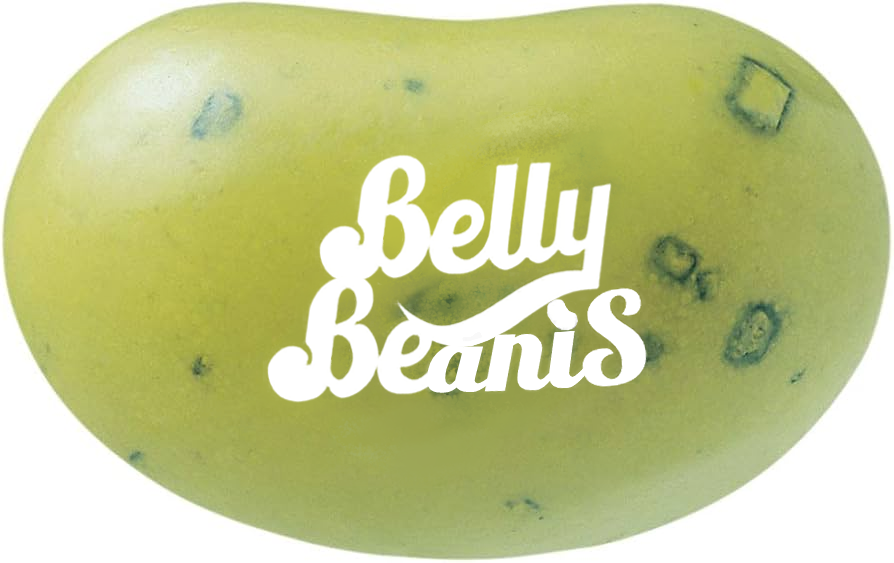It’s likely that there will never be a site like 4chan again. But everything now—from X and YouTube to global politics—seems to carry its toxic legacy.
Archived version: https://archive.is/20250422233152/https://www.wired.com/story/4chan-is-dead-its-toxic-legacy-is-everywhere/
It wasn’t always toxic. RIP
I miss the wallpaper board, and cooking board, and retro game board.
That’s about it, tho.
I miss when moot ran it and it didn’t have “mainstream” interest boards.
When I first used 4chan, more specifically /b/ in like 2009 and it was wild. There were definitely a lot of horrible people, but it was far from the majority of the posts there; there was actual interesting content and interesting discussions at times.
Every time I’ve been to /b/ over the last 5-10 years has been nothing short of horrific.
The content of /b/ over the last however long would variably look like this:
Extremely racist thread
Thread of actual gore showing severally mutilated human beings or less frequently animals
Trans hate thread
Intimate pictures of people you know viewed as porn thread Another racist thread
Another trans hate thread
4 more similar pornographic threads
Another gore thread
Rinse & RepeatFuck 4chan and virtually everyone who’s been active on /b/.
The right literally used it as a dog whistle to get their people on a site they could be fed info. That’s why 4chan was central to being seen as white supremacist by fox news. They announce it is, and so they go there to check it out.
Over the last decade it really has been a decay, of even the porn threads being nothing but race focused. I think it was around the time Pepe started becoming another connection with 4chan, that’s when it got noticeable.
By the end /aco/ and /gif/ were haltingly slow. Even gif didn’t have threads reach the limit and start a continuation anymore.
Porn is a very dominant way of convincing people. Its half of why ai is so adored. You can make them believe anything through suggestion or outright flattery.
Meh. Truth be told I’d rather however did this put the effort into getting rid of Kiwi Farms instead
Maybe dumb question, but I didn’t follow this too closely: Why don’t they just update their software and install a backup?
A typical 4chan user is very concerned about privacy, because it’s a place they do stuff they wouldn’t do elsewhere.
Once a trust is broken, it is very hard to regain. Technically, nothing stops it from appearing again. But will the userbase follow?
Nah, they’ve blocked Tor since many years. That’s not the issue here.
4Chan has an insane reputation but outside of a few boards it wasn’t really worse than reddit, Facebook, or twitter (which is to say, social media is a pretty mixed bag) and posters were a fair bit funnier.
I am kinds baffled by the idea of 4Chan as this hive of scum and villany. As if Nazis don’t recruit on Facebook, or reddit didn’t have jailbait, theDonald, and xpeoplehate as massive prominent subs.
I don’t know. I remember the guy who posted on /b/ after he strangled some poor woman to death, with pics. Pretty sure he was arrested and jailed straight away, but l’ll never forget how surprised he was. “She fought so hard!” was chilling to read.
4chan was a pretty horrific place at times, but the benefit of it was that all the weirdos were there, and everyone could see it. I shudder to think how deep the depravity will go when it’s hidden on a private Discord or something.
There are literal terrorist cells on Facebook…
I’m glad it’s dead.
I love the idea of imageboards. I love “anonymous” posting as a default. I love ephemeral threads.
I thought generals were pretty good. Board culture was real. People would make nontrivial 4chan optimized original content for what I assume was love of art.
There was something special about 4chan that I don’t think exists in forums, lemmy, tumblr, tiktok, or the other forms of social media we have now.
But the place was a shithole.
Split as it was by boards and threads, I could insulate myself from it to some extent but the culture on 4chan was getting worse year by year. The famous boards attracted the MAGA crowd and population had a large effect on what threads lived and died. I had so many threads hidden and yet I would still get a wave of revulsion looking at the catalog on my favorite board.
There are other imageboards. There are open source imageboard projects. Without 4chan’s shadow, I hope that imageboards and imageboard culture develop in different directions.


newlemmings can’t triforce
▲
▲ ▲
Paywalled. Here’s the full article text:
My earliest memory of 4chan was sitting up late at night, typing its URL into my browser, and scrolling through a thread of LOLcat memes, which were brand-new at the time.
Back then a photoshop of a cat saying “I can has cheezburger” or an image of an owl saying “ORLY?” was, without question, the funniest thing my 14-year-old brain had ever laid eyes on. So much so, I woke my dad up by laughing too hard and had to tell him that I was scrolling through pictures of cats at 2 in the morning. Later, I would become intimately familiar with the site’s much more nefarious tendencies.
It’s strange to look back at 4chan, apparently wiped off the internet entirely last week by hackers from a rival message board, and think about how many different websites it was over its more than two decades online. What began as a hub for internet culture and an anonymous way station for the internet’s anarchic true believers devolved over the years into a fan club for mass shooters, the central node of Gamergate, and the beating heart of far-right fascism around the world—a virus that infected every facet of our lives, from the slang we use to the politicians we vote for. But the site itself had been frozen in amber since the George W. Bush administration.
It is likely that there will never be a site like 4chan again—which is, likely, a very good thing. But it had also essentially already succeeded at its core project: chewing up the world and spitting it back out in its own image. Everything—from X to Facebook to YouTube—now sort of feels like 4chan. Which makes you wonder why it even needed to still exist.
“The novelty of a website devoted to shock and gore, and the rebelliousness inherent in it, dies when your opinions become the official policy of the world’s five or so richest people and the government of the United States,” the Onion CEO and former extremism reporter Ben Collins tells WIRED. “Like any ostensibly nihilist cultural phenomenon, it inherently dies if that phenomenon itself becomes The Man.”
My first experience with the more toxic side of the site came several years after my LOLcat all-nighter, when I was in college. I was a big Tumblr user—all my friends were on there—and for about a year or so, our corner of the platform felt like an extension of the house parties we would throw. That cozy vibe came crashing down for me when I got doxed the summer going into my senior year. Someone made a “hate blog” for me—one of the first times I felt the dark presence of an anonymous stranger’s digital ire, and posted my phone number on 4chan.
They played a prank that was popular on the site at the time, writing in a thread that my phone number was for a GameStop store that had a copy of the ultra-rare video game Battletoads. I received no less than 250 phone calls over the next 48 hours asking if I had a copy of the game.
Many of the 4chan users that called me mid-Battletoad attack left messages. I listened to all of them. A pattern quickly emerged: young men, clearly nervous to even leave a message, trying to harass a stranger for, seemingly, the hell of it. Those voicemails have never left me in the 15 years I’ve spent covering 4chan as a journalist.
I had a front-row seat to the way those timid men morphed into the violent, seething underbelly of the internet. The throbbing engine of reactionary hatred that resented everything and everyone simply because resentment was the only language its users knew how to speak. I traveled the world in the 2010s, tracing 4chan’s impact on global democracy. I followed it to France, Germany, Japan, and Brazil as 4chan’s users became increasingly convinced that they could take over the planet through racist memes, far-right populism, and cyberbullying. And, in a way, they did. But the ubiquity of 4chan culture ended up being an oddly Pyrrhic victory for the site itself.
Collins, like me, closely followed 4chan’s rise in the 2010s from internet backwater to unofficial propaganda organ of the Trump administration. As he sees it, once Elon Musk bought Twitter in 2022 there was really no point to 4chan anymore. Why hide behind anonymity if a billionaire lets you post the same kind of extremist content under your real name and even pays you for it?
4chan’s “user base just moved into a bigger ballpark and started immediately impacting American life and policy," Collins says. “Twitter became 4chan, then the 4chanified Twitter became the United States government. Its usefulness as an ammo dump in the culture war was diminished when they were saying things you would now hear every day on Twitter, then six months later out of the mouths of an administration official.”
But understanding how 4chan went from the home of cat memes to a true internet bogeyman requires an understanding of how the site actually worked. Its features were often overlooked amid all the conversations about the site’s political influence, but I’d argue they were equally, if not more, important.
4chan was founded by Christopher “Moot” Poole when he was 15. A regular user on slightly less anarchic comedy site Something Awful, Poole created a spinoff site for a message board there called “Anime Death Tentacle Rape Whorehouse.” Poole was a fan of the Japanese message board 2chan, or Futaba Channel, and wanted to give Western anime fans their own version, so he poorly translated the site’s code and promoted his new site, 4chan, to Something Awful’s anime community. Several core features were ported over in the process.
4chan users were anonymous, threads weren’t permanent and would time out or “404” after a period of inactivity, and there were dozens of sub-boards you could post to. That unique combination of ephemerality, anonymity, and organized chaos proved to be a potent mix, immediately creating a race-to-the-bottom gutter culture unlike anything else on the web. The dark end point of the techno-utopianism that built the internet. On 4chan you were no one, and nothing you did mattered unless it was so shocking, so repulsive, so hateful that someone else noticed and decided to screenshot it before it disappeared into the digital ether.
“The iconic memes that came out of 4chan are because people took the time to save it, you know? And the fact that nobody predicted, nobody could predict or control what was saved or what wasn’t saved, I think, is really, really fascinating,” Cates Holderness, Tumblr’s former head of editorial, tells WIRED.
Still, 4chan was more complicated than it looked from the outside. The site was organized into dozens of smaller sections, everything from comics to cooking to video games to, of course, pornography. Holderness says she learned to make bread during the pandemic thanks to 4chan’s cooking board. (Full disclosure: I introduced Holderness to 4chan way back in 2012.)
“When I switched to sourdough, I got really good pointers,” she says.
Holderness calls 4chan the internet’s “Wild West” and says its demise this month felt appropriate in a way. The chaos that defined 4chan, both the good and the very, very bad, has largely been paved over by corporate platforms and their algorithms now.
Our feeds deliver us content; we don’t have to hunt for it. We don’t have to sit in front of a computer refreshing a page to find out whether we’re getting a new cat meme or a new manifesto. The humanness of that era of the web, now that 4chan is gone, is likely never coming back. And we’ll eventually find out if that’s a good thing or a bad thing.
“The snippets that we have of what 4chan was—it’s all skewed,” Holderness says. “There is no record. There’s no record that can ever encapsulate what 4chan was.”
Holy SHIT is the author full of himself
Yeah, he claims to understand 4Chan culture, but then post such a clickbait article that focuses 4Chan as the “violent, seething underbelly of the internet”. Oooo… spooky!
That was actually a great article, ty!
deleted by creator
I’m that person. I get into fights on there a lot and call people troglodytes all the time. One time though some rednecks came into my work and told me they had seen all my comments, they said they thought they were funny but in a vague manor that left it 50/50 on if they really thought they were funny or if they were giving me a veiled threat not to leave more. I never did learn my lesson about engaging with cretins, most of which are probably bots these days, but I have reduced my Facebook usage to essentially nothing more than sharing articles I find important.
League of Legends being so popular they just called themselves “New Thread” will live on forever in my memory.
I really appreciate seeing an article written by someone who is actually familiar with the culture and history of the site.
Qanon and Actual Nazis were not 4chan norm back in the day. The alt right nazi hateful shit was posted but it was more like larping/shock value immature crap and nothing like what we see in the mainstream social/media today. Misogyny too. I’m not denying that there weren’t people there who meant it but it was 99% shitposting. There’s also the hacktivism, social activism, soooooooo many memes like as substantial as YouTube as establishing the humor culture of the internet. I find the site so fascinating and much more than some cesspool of evil it became.
It is weird it is gone. I suspect moot is not so interested in sticking his neck and wallet out to protect the freedom of speech for facscists trying to destroy democracy and that’s why it’s not back. I’m pretty sure 4chan has been down before for various reasons more substantial than hacking but it could be fabricated memory
What the fuck are you talking about? Stormfront came in in 2012 and it’s been nazis all the way down since
And 4chan normalized it, and recruited legions of pissed off, horny young boys.
It’s more that they colonized than normalized, meaning they kept shitting up the place until nearly everyone not racist left in disgust
Then they looked around and saw mostly racist posts and concluded that it was ‘normal’ and then Steve Bannon directed all their ambient anger towards Gamergate and the rest is history, disgusting bigoted history.
moot sold the site to hiro in 2015, but I think your reasoning is valid - it’s possible hiro is not too eager to defend the fascists who infested 4chan, and simply won’t bother to put the site up again.
If that was the case he could have deleted /pol/ and banned its users. 2016 would have been a great time for that.
Fair point. And frankly, he should’ve done this.
Moot sold 4chan years ago.
Non-paywall: https://archive.ph/7NzMN
Good fucking riddance
It was always shit. IIRC wasn’t it started by some guy who was mad Something Awful didn’t allow loli?
Gross
As far as I know, Chris Poole (AKA “m00t”) made 4chan to talk about anime in general and after all hentai was banned on Something Awful.
Quite proud to say that I’ve never ventured into any of the #chans. They frighten the fuck outta me, frankly.














